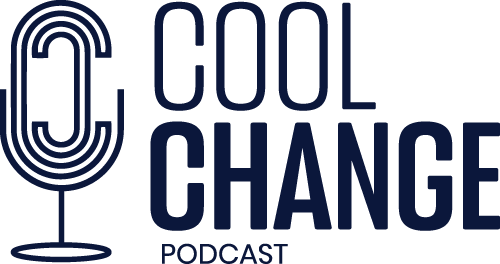Episode 79
79. Step 3: The Disruption -- It's Time to Take the Wheel (3 of 6 in the Cool Change Method™ Series)
Are you stuck in a pattern you didn’t choose… but keep repeating?
Do you ever feel like your life is running on autopilot, and no matter how hard you try, you keep ending up in the same place?
That’s not a motivation problem. It’s a disruption problem.
In this episode, Chuck Allen helps you identify the unconscious beliefs that are driving your behaviors—and gives you a practical tool to begin breaking free. This is the third stage of the Cool Change Method™—where awareness turns into agency, and real change begins.
You’ll learn:
• Why behavior change doesn’t last without belief change
• How to know when you’re truly ready to disrupt a pattern
• The difference between performative change and real traction
• A simple Pattern Interrupt Practice to apply immediately
• Why your focus must be top-of-mind, not buried in a doc
You’ll also hear a story from Chuck’s time at The Home Depot that changed his leadership identity—and a deeply personal reflection on the grief and freedom that come with disrupting what no longer serves you or the people around you.
🎧 This is the moment to take the wheel of your life.
🔁 Share this episode with someone who’s ready for real change.
▶ Listen now, or catch up on the first two episodes in the series:
Transcript
Hey there, Chuck Allen here, and welcome back to Cool Change.
Speaker A:Today's episode is part three in our six part series, Walking through the Cool Change Method, a framework I've developed to help people navigate transitions and redesign their lives on purpose.
Speaker A:If this is your first time tuning in, I'd encourage you to hit pause and go back to episodes 77 and 78, because those lay the groundwork for what we're diving into today.
Speaker A:Episode 77 is called the stirring.
Speaker A:It's about that subtle sense that something's shifting inside you.
Speaker A:And episode 78, the Mirror, explores how we begin to see ourselves more clearly and reckon with what we find.
Speaker A:Each episode is less than 10 minutes.
Speaker A:In this third stage, we move into the disruption, the moment when awareness becomes action, when the story begins to crack open.
Speaker A:Thanks for being here.
Speaker A:Let's get into it.
Speaker A:There are moments, moments in life, when someone tells you the truth.
Speaker A:Not a flattering truth, not a brutal one either.
Speaker A:A clarifying truth, one that makes you stop mid step, stare at your reflection, and realize this isn't working anymore.
Speaker A:That moment is disruption.
Speaker A:And it's the hinge point of transformation.
Speaker A:This episode is for the ones who are ready to stop blaming, ready to start owning and quietly aware that something, maybe everything, needs to change.
Speaker A:Not in a dramatic blow it all up kind of a way, but in the kind of way where you realize the story you've been living might not be the story you want to keep writing.
Speaker A:I was in my 20s, working at the Home Depot corporate offices, and by most measures, I was flying high.
Speaker A:I had written a leadership program for the company.
Speaker A:I was traveling the country doing motivational speeches and pep rallies.
Speaker A:I was even the company news anchor for Home Depot television.
Speaker A:And then Jeff Barrington walked into my office.
Speaker A:Jeff was the director of training, my boss's boss.
Speaker A:A witty, kind, sharp, respected, no nonsense kind of a guy.
Speaker A:He said, chuck, can I talk to you for a minute?
Speaker A:Of course.
Speaker A:So we sat in his office and he asked, how often do you get voicemails from people asking for your opinions on something?
Speaker A:I said, honestly, hardly ever.
Speaker A:He follows up, how many people drop by your office and bounce ideas off of you?
Speaker A:Again, not many.
Speaker A:Then he said, chuck, the reason is because you're always right.
Speaker A:You believe you're always right, and there's no space around you for a dissenting opinion.
Speaker A:And as a result, your influence is shrinking.
Speaker A:That conversation changed my life.
Speaker A:It was the first time someone had spoken truth to me that way.
Speaker A:Direct, clear, but with empathy.
Speaker A:He wasn't trying to tear me down.
Speaker A:He was inviting me to wake up.
Speaker A:And I did.
Speaker A:I went from someone who thought he knew everything to someone who started questioning everything he thought he knew.
Speaker A:Andy Stanley said it best.
Speaker A:Leaders who fail to listen will eventually be surrounded by people with nothing to say.
Speaker A:And that was me.
Speaker A:I had been living inside a story where I was the golden child with all the answers.
Speaker A:After that conversation, I started rewriting it line by line.
Speaker A:Most of us are living inside inherited scripts, stories we didn't write but absorbed from family culture, bosses, coaches, scripts about what success looks like, how we're supposed to show up, who we're allowed to become.
Speaker A:Disruption is when we finally pause and ask, whose voice is this in my head and do I still want to follow it?
Speaker A:Years later, I was working with three executives from one of the biggest banks in the country.
Speaker A:And one Friday night, I overheard them talking about leaving that company to start fresh somewhere else.
Speaker A:They were worn down, disillusioned.
Speaker A:They were ready to escape.
Speaker A:So I asked them a few questions.
Speaker A:Would you guys want to work together again?
Speaker A:Yes.
Speaker A:Would you want to land somewhere with built in credibility or just kind of start all over again?
Speaker A:Yeah, absolutely.
Speaker A:We want some built in credibility from the beginning.
Speaker A:Would you prefer to start with a substantial budget in place already rather than start from scratch?
Speaker A:Yeah, of course.
Speaker A:So what you're describing is exactly what you already have.
Speaker A:Silence.
Speaker A:They realized they weren't stuck in a bad situation, they were stuck in a bad story.
Speaker A:And by Monday, they came back to work with a different mindset.
Speaker A:They led differently, they collaborated differently, and the work they did over the next year became the stuff of case studies.
Speaker A:That's the power of disruption.
Speaker A:It doesn't always change your job, it changes your lens.
Speaker A:As a coach, I've learned to listen for readiness, and it almost always sounds the same.
Speaker A:It sounds like someone saying, I've been part of this.
Speaker A:I see where I've contributed, and I'm ready to own my peace.
Speaker A:That's when I know they're ready to disrupt.
Speaker A:Because as long as someone is blaming everyone else, their partner, their boss, the economy, the algorithm, they're not ready.
Speaker A:Disruption starts the moment you say, this is mine to change.
Speaker A:One of the biggest misconceptions about change is that it starts with action.
Speaker A:People say, I want different results, so I'll do different things.
Speaker A:And for a while, it works.
Speaker A:New behaviors usually do create new results.
Speaker A:But here's the thing.
Speaker A:Those behaviors are sitting on top of beliefs.
Speaker A:And if you don't examine or shift or rewrite those beliefs, your new behaviors won't stick.
Speaker A:Beliefs drive behaviors Behaviors drive results.
Speaker A:So if you want different results that actually last, you have to go all the way back.
Speaker A:You have to ask, what belief is driving this and is it still serving me?
Speaker A:That's why disruption matters, because it reaches below the surface.
Speaker A:Let's talk about performative change.
Speaker A:Sometimes clients want to please me.
Speaker A:They want to show up for the test.
Speaker A:They want the gold star.
Speaker A:I've done it too.
Speaker A:I had a mindfulness coach for years.
Speaker A:And the hardest work I did oftentimes during the sessions.
Speaker A:Between sessions, I didn't always meditate or journal or do the internal work.
Speaker A:It was like flossing right before the dentist appointment.
Speaker A:It's human, but here's the truth.
Speaker A:The real traction happens between the sessions.
Speaker A:In the quiet, in the moments where you tell yourself the truth and you look at your patterns squarely.
Speaker A:Because those patterns, they run our lives until we name them.
Speaker A:Disruption is the one chance to break the pattern.
Speaker A:And when we do, it creates exponential change.
Speaker A:Not incremental, not surface level, but deep, intentional, designed change.
Speaker A:Probably the biggest disruption in My life happened 15 years ago.
Speaker A:My divorce wasn't just disruptive to me.
Speaker A:It affected the people I love most.
Speaker A:My.
Speaker A:My kids, my extended family.
Speaker A:And yeah, it was familiar and in many ways comfortable the situation that we were in.
Speaker A:But my ex wife and I both knew that something had to shift.
Speaker A:We made the painful choice to part ways.
Speaker A:And one of the things that helped me through it was a belief that we didn't have to throw everything away.
Speaker A:We could preserve the best parts of our relationship and carry them into the next chapter.
Speaker A:I used to think of it like this.
Speaker A:We could click and save as and then paste special into the next chapter, into what came next.
Speaker A:Keep the good, leave the rest.
Speaker A:It was hard.
Speaker A:There were dark days.
Speaker A:But there was also mutual respect, grace, and eventually a friendship that continues to this day.
Speaker A:And that disruption freedom, both of us to grow into who we were meant to become and eventually meet the people we were meant to meet.
Speaker A:That moment, the letting go of something familiar, even when it had shaped so much of who I was, is the very heart of disruption.
Speaker A:It's the shift from holding on to a story that once made sense to stepping into something unknown, but more aligned.
Speaker A:Our divorce wasn't about blame and it wasn't one sided.
Speaker A:It was a mutual recognition that the version of life we had built together was no longer serving either one of us.
Speaker A:The decision came from respect and clarity, not from conflict.
Speaker A:Disruption in that sense, meant honoring the truth and making space for new growth on both sides.
Speaker A:Here's something Simple.
Speaker A:You can try this week.
Speaker A:I call it a pattern interrupt.
Speaker A:Pick one area of your life where you feel stuck or reactive.
Speaker A:Maybe it's a daily habit, a conversation that always goes sideways, a mood that sneaks up on you.
Speaker A:And then ask yourself these three questions.
Speaker A:One, what keeps happening here?
Speaker A:Two, what belief might be underneath this pattern?
Speaker A:And three, what would disrupting that pattern just slightly look like today?
Speaker A:Maybe it's pausing before replying.
Speaker A:Maybe it's saying no where you'd normally say yes.
Speaker A:Maybe it's doing something in silence instead of noise.
Speaker A:But here's the deeper layer.
Speaker A:If I were to walk into your place of work and ask, hey, what are you working on developmentally?
Speaker A:If you had to go to your phone or open a document or pull out a paper from a file cabinet to answer me, then you're not actually working on it.
Speaker A:The only kind of developmental change that sticks is, is when you typically turn right, but by intention, you decide to go left.
Speaker A:And you only do that if your intention is top of mind.
Speaker A:Not hidden in a folder, not buried in an app, but right there where you live.
Speaker A:That's why I encourage people to try something I call the Start, Stop, keep method.
Speaker A:Very simple, just one idea per day.
Speaker A:When your feet hit the floor in the morning, ask, what's one thing I will start doing today?
Speaker A:What will I stop doing today?
Speaker A:What will I keep doing today?
Speaker A:Let's say you struggle with listening.
Speaker A:You tend to interrupt or talk more than you hear.
Speaker A:You might say, today I'm going to start trying to see the world through others eyes.
Speaker A:I'll stop interrupting or preparing my response while they're still talking.
Speaker A:And I'll keep caring about the people around me.
Speaker A:That's it.
Speaker A:Simple.
Speaker A:But it works because it's alive in you.
Speaker A:It's top of mind when the moment comes.
Speaker A:And if you want to model for this, go back to Ben Franklin.
Speaker A:He had famously 13 virtues.
Speaker A:One at a time, he tried to live in alignment with each, tracking his progress day by day.
Speaker A:He didn't multitask his growth.
Speaker A:He mastered it one piece at a time.
Speaker A:This is your one piece, your one pattern, your one focus.
Speaker A:Let it be the small shift that makes everything else possible, possible.
Speaker A:If this disruption phase had a mantra, it's this.
Speaker A:It's time to get out of the passenger seat of your own life.
Speaker A:Slide over, put your hands on the wheel, take your foot off the brake.
Speaker A:Stop letting the car drive on autopilot.
Speaker A:Maybe it's been someone else in the driver's seat.
Speaker A:Maybe it's been an old version of you.
Speaker A:It's your turn.
Speaker A:And yes, you'll need help.
Speaker A:You'll need community.
Speaker A:You'll need moments of rest.
Speaker A:But the steering wheel belongs to you.
Speaker A:Because disruption isn't about destruction.
Speaker A:It's about reclamation.
Speaker A:And this is where everything begins to change.
Speaker A:Thanks for listening to this episode of Cool Change.
Speaker A:This series is building week by week, and I hope it's helping you feel a little bit more grounded, a little more seen, and a little more equipped to navigate whatever change you're facing.
Speaker A:If this episode spoke to you, would you do me a favor?
Speaker A:Send it to someone who might need it, Share it on social, or just bring it up in conversation with a friend.
Speaker A:And if you haven't yet, go back and check out episodes 77 and 78.
Speaker A:To get the full arc of the journey, we're layering each phase intentionally to mirror what real transformation looks like.
Speaker A:We'll be back next week with episode 80, the Design, where we begin to shape the next chapter of your life with intention.
Speaker A:Until then, keep noticing, keep naming, keep going.
Speaker A:Sam.





